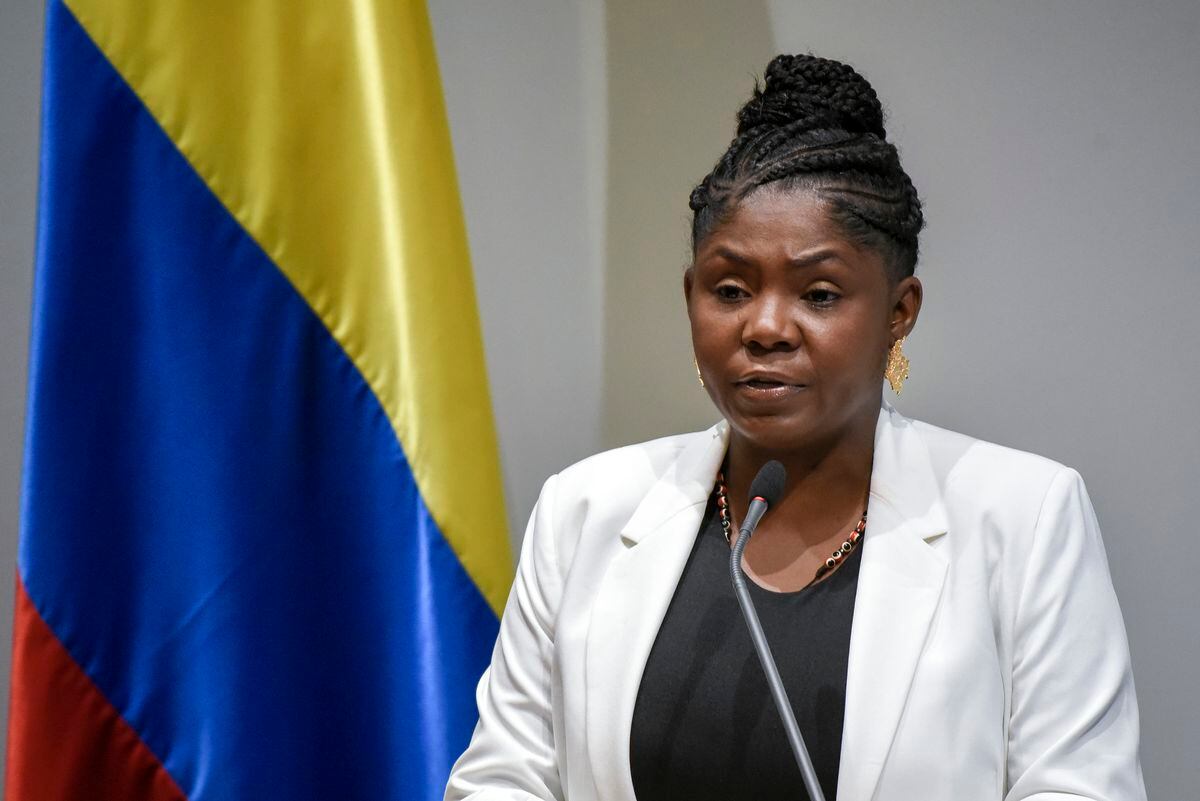From the first day that Francia Márquez became Gustavo Petro's presidential ticket, last March, he said that he did not want to be the president's shadow.
"This vice presidency is not going to be for decoration, I am not a woman for decoration," she assured then.
Six months after that statement, and a month after reaching the executive power, Colombia is still debating whether the vice president is going to be an ornament or not.
This Wednesday, President Petro finally issued a decree with the new functions for her.
On the one hand, the decree recognizes the leadership that Márquez can have on issues that she has championed for years, such as the rights of black communities or women.
But on the other, the decree does not leave in the hands of Francia Márquez a budget, or a team, with which she would count if she had a ministry.
And her,
According to the new decree, the vice president would have the function of coordinating, with different institutions, public policies to combat poverty or discrimination against women, the LGBTQ+ population, or people with disabilities.
Among them, she will coordinate the design of a new public care policy that could have an impact on unpaid (or poorly paid) work that falls mostly on women.
Márquez will also have to coordinate new policies to protect the rights of the Afro-Colombian and indigenous population of the Colombian Pacific, a region that voted overwhelmingly for her in the first and second presidential rounds.
The decree says that she will have to coordinate a way to fulfill a development plan for the region, known as the Plan Todos Somos PAZífico, in addition to an agreement between the national government and communities in the port of Buenaventura, which was signed in 2017. It would coordinate a path to implement the ethnic chapter of the Peace Agreement that was signed in 2016, and it should advance in the regulation of Law 70 of 1993, one that recognizes special rights to Afro-Colombian communities of the Pacific.
And more than coordinate,
On the one hand, the decree is in accordance with what the flags of Francia Márquez have been as a feminist —who made the politics of care a priority in the campaign— or as an environmental activist of the Colombian black communities, who denounce the lack of will policy in previous governments to guarantee the rights of ethnic communities and comply with past agreements.
"The functions of the vice president are delegated functions of the president, and so we have agreed on these functions," Márquez told Noticias Caracol, to point out that this was not a decision imposed by Petro without his approval.
"They are part of the essence of what I am, of what I represent, which is social policy."
But, on the other hand, the key word of this decree is “coordinate”, the main function that the decree gives to Márquez.
She would have the task of aligning mayors, or governors, or ministries with this, because those entities have a budget, while she, as coordinator, does not.
Her power on these issues, in other words, depends on her leadership.
And that leadership depends on how much those other dependencies give him playing space.
The previous vice president, Marta Lucía Ramírez, had very little power during the presidency of Iván Duque, and the decree that gave her functions in 2018 was also, for example, to coordinate a public policy between institutions for the population with disabilities.
Only when Ramírez managed to get Duque to appoint her to the Foreign Ministry, in the second part of her mandate,
got some wiggle room.
There he managed to be more than an ornament.
Petro and Márquez had agreed in the campaign that she would lead a new Ministry of Equality, but for this to become a reality, she would first have to pass a reform in Congress that creates it and assigns officials and functions to it (or a reform that gives Petro functions to restructure the ministries).
That has not been presented yet.
Meanwhile, if she does show up, Petro was expected to hand over the Department for Social Prosperity, DPS, which designs public policies to combat poverty, to Márquez, eventually becoming the Ministry of Equality.
Petro discarded the idea a day before launching the decree with the functions for the vice president.
Petro appointed there, instead, Cielo Rusinque, a lawyer and academic whose appointment has generated much disgust among feminists on the left because Rusinque in the past supported a petrista politician accused by his ex-wife of gender violence and a professor accused of harassment sexual.
It was rumored that the appointment had created a distance between the president and his vice president.
“There are many rumours, but I am not a woman who allows myself to be isolated,” Márquez said, trying to dispel the noise.
She still does not have a Ministry, or DPS, or a budget, but she has not stopped fighting for her share of power in the Government.
Subscribe here
to the EL PAÍS newsletter on Colombia and receive all the key information on the country's current affairs.

